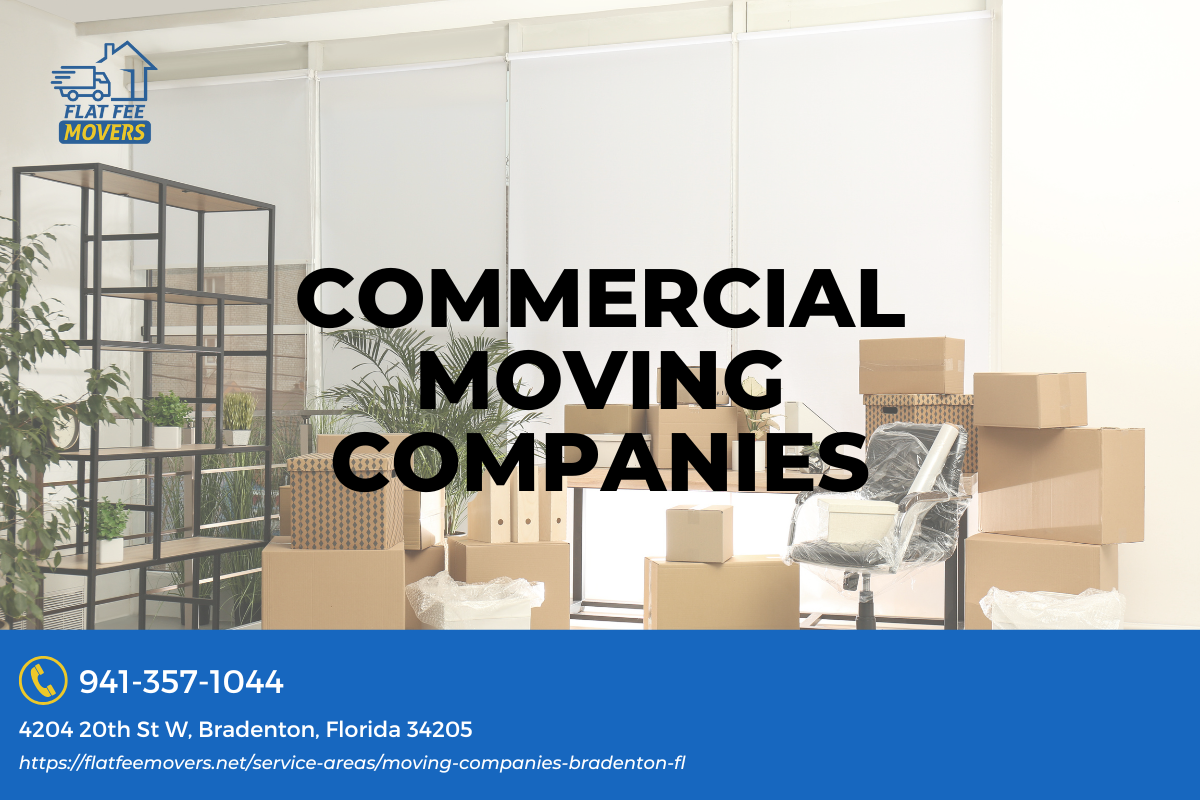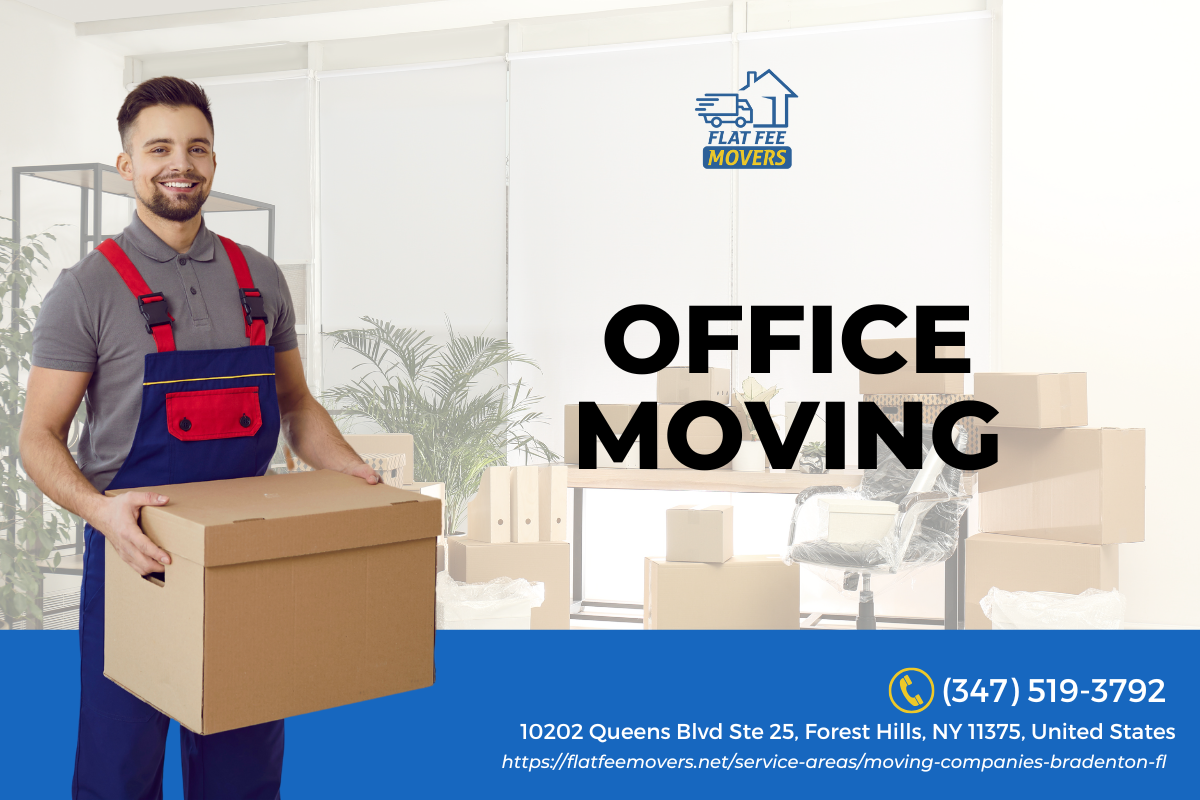


Introduction
Moving can be a daunting task, especially when it comes to commercial moves. Whether you are relocating your office or business to a new location, there are many things to consider and plan for to ensure a smooth transition. In this article, we will provide you with the top 10 commercial moving tips that will help make your relocation process seamless and hassle-free.
1. Start Early to Avoid Last-Minute Hassles
Planning is key when it comes to commercial moves. It is important to start early and give yourself plenty of time to organize and prepare for the move. This includes creating a detailed timeline, setting goals, and allocating resources accordingly. By starting early, you can avoid any last-minute hassles and ensure that everything is in order before the big day.
2. Hire Professional Commercial Movers
To ensure a successful relocation, it is crucial to hire professional commercial movers who specialize in handling commercial moves. These experts have the knowledge, experience, and equipment necessary to handle all aspects of your move efficiently and effectively. Look for reputable commercial movers in your area, such as Commercial Movers Bradenton, who can provide you with reliable services tailored to your specific needs.
3. Create a Detailed Moving Checklist
A moving checklist is an essential tool that will help you stay organized during the entire moving process. It should http://emiliognkz850.theglensecret.com/tips-for-minimizing-downtime-during-a-commercial-move include all the tasks that need to be completed before, during, and after the move. This will not only keep you on track but also ensure that nothing important gets overlooked or forgotten. Be sure to include tasks such as notifying clients or customers about the move, updating your address with vendors and service providers, and transferring utilities.
4. Notify Clients or Customers in Advance
It is crucial to inform your clients or customers about your upcoming move well in advance. This will help manage their expectations and minimize any disruption to your business operations. Send out personalized emails or letters, update your website and social media platforms, and consider hosting an open house or event at your new location to showcase the exciting changes. By communicating proactively, you can maintain positive relationships with your clients or customers throughout the transition.
5. Label Boxes and Items Clearly
When packing for your commercial move, it is important to label all boxes and items clearly. This will make the unpacking process much easier and save you time and effort in the long run. Use color-coded labels or stickers to identify different departments or areas within your office or business. Additionally, create a detailed inventory list of all packed items to ensure that nothing goes missing during transit.
6. Protect Fragile Items with Proper Packing Materials
Fragile items such as computers, monitors, printers, and other electronics require extra care during a commercial move. Invest in proper packing materials such as bubble wrap, packing paper, and sturdy boxes to protect these delicate items from damage. Make sure to pack them securely and label the boxes as fragile for easy identification.
7. Coordinate with Building Management
If you are moving into a commercial building or office complex, it is important to coordinate with the building management beforehand. They may have specific rules or guidelines regarding move-in procedures, parking, elevator usage, and access to loading docks. By communicating with them in advance, you can ensure a smooth transition into your new space without any unnecessary delays or complications.
8. Back Up Important Data
Before the move, it is crucial to back up all important data from your computers and servers. This will protect your valuable information in case of any unforeseen accidents or mishaps during transit. Consider using cloud storage or external hard drives to store your data securely. It is also a good idea to update all software applications on your devices before shutting them down for the move.
9. Delegate Responsibilities to Key Team Members
To ensure a smooth and efficient relocation, delegate specific responsibilities to key team members within your organization. This will help distribute the workload and ensure that each task is handled by someone who is knowledgeable and capable. Assign roles such as overseeing the packing process, coordinating with vendors and service providers, and managing employee communication during the move.
10. Conduct a Post-Move Evaluation
Once the move is complete, it is important to conduct a post-move evaluation to assess how well everything went. Take the time to review the entire moving process, identify any areas for improvement, and gather feedback from your team members. This will help you learn from the experience and make future moves even smoother.
FAQs
Q: How much does it cost to hire commercial movers? A: The cost of hiring commercial movers can vary depending on several factors such as the size of your move, distance traveled, additional services required, and the reputation of the moving company. It is best to request multiple quotes from different companies to determine the most cost-effective option for your specific needs.
Q: Can I pack my own items for a commercial move? A: While it is possible to pack your own items for a commercial move, it is highly recommended to hire professional packers or utilize the packing services offered by commercial moving companies. They have the expertise and materials necessary to pack your items safely and efficiently, minimizing the risk of damage during transit.
Q: How long does a commercial move typically take? A: The duration of a commercial move can vary depending on several factors such as the size of your move, complexity of logistics, distance traveled, and any additional services required. It is best to consult with your chosen moving company to get an accurate estimate based on your specific circumstances.
Q: How far in advance should I book my commercial move? A: It is recommended to book your commercial move at least 2-3 months in advance to ensure availability and allow ample time for planning and preparation. However, if you have a smaller move or are flexible with your moving dates, it is possible to book closer to your desired moving date.
Q: What should I do with items that I no longer need during the move? A: Before the move, take inventory of all your items and identify any that are no longer needed or have reached their end of life. Consider donating or recycling these items to reduce clutter and avoid unnecessary transportation costs. Alternatively, you can sell or dispose of them responsibly.
Q: How can I minimize disruption to my business during the move? A: To minimize disruption to your business operations during a move, consider creating a detailed plan that outlines how different aspects of your business will be handled during the transition. This may include temporary office setups, remote work arrangements, or outsourcing certain tasks. Communicate with employees, clients, and vendors regularly to keep them informed and manage their expectations.
Conclusion
Relocating your office or business can be a complex process, but with proper planning and execution, it can be a smooth and successful endeavor. By following these top 10 commercial moving tips, you can ensure that your transition is seamless and hassle-free. Remember to start early, hire professional commercial movers like Commercial Movers Bradenton, create a detailed checklist, communicate with stakeholders, protect fragile items, coordinate with building management, back up important data, delegate responsibilities, and conduct a post-move evaluation. With these tips in mind, you'll be well-prepared for a smooth relocation experience.